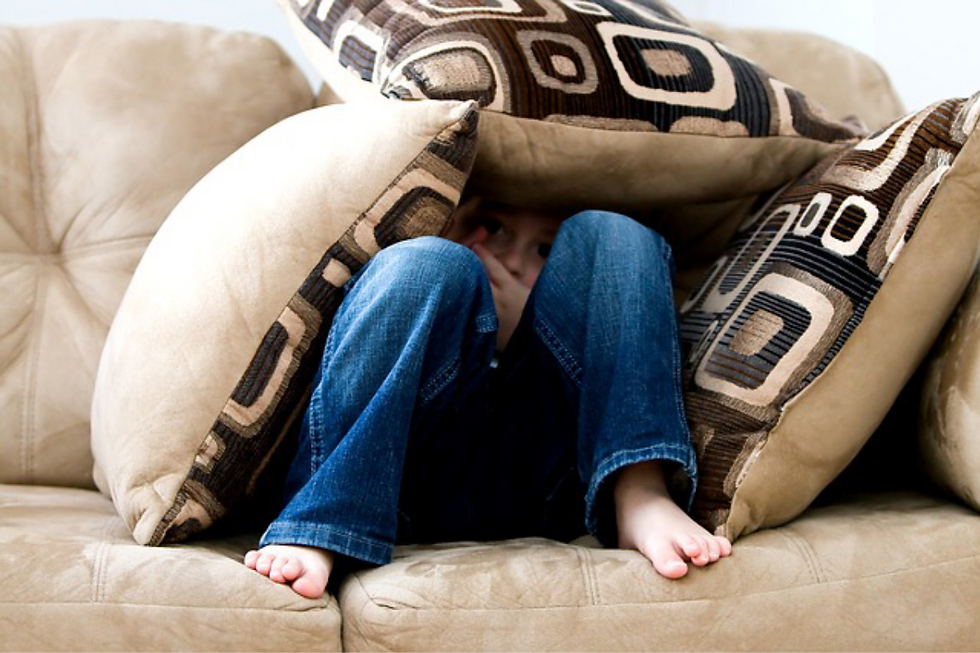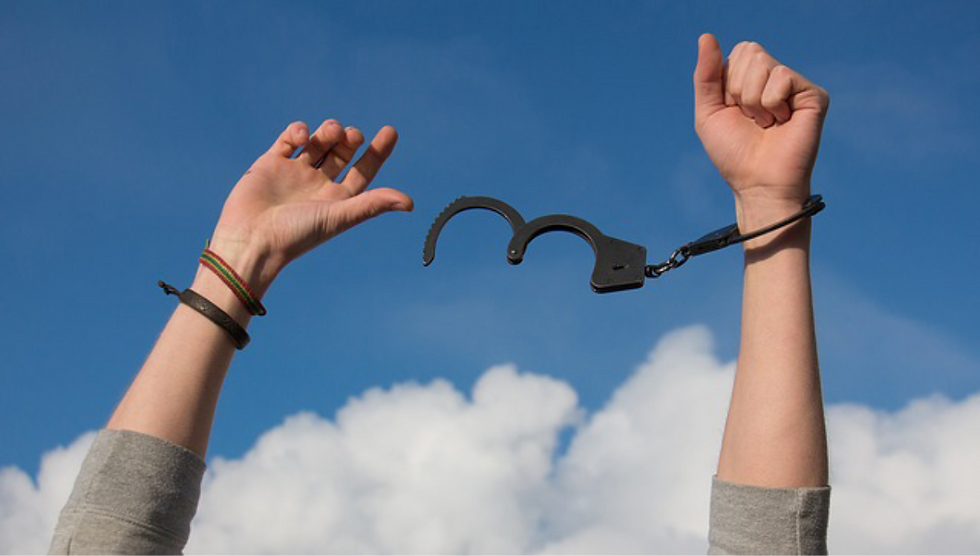Overcome Addiction Fears; The Path To True Recovery
- Sep 28, 2018
- 10 min read
Updated: Aug 4, 2025

The journey to sobriety is a powerful and life-changing one, but it's often clouded by fear. These fears, whether about withdrawal, change, or the damage done, can feel overwhelming. I've spent years helping people navigate these exact challenges, and I can tell you with certainty that facing these fears is not only possible but essential for lasting recovery.
What are some of the most common fears people face in addiction recovery?
Many people in recovery worry about the physical pain of withdrawal, the emotional toll of facing past mistakes, the loss of friends, and the overwhelming nature of feeling emotions again after a long period of being numb.
Getting a handle on these fears is the first step toward long-term recovery. We'll explore these common worries one by one, giving you the tools to understand them and move past them. Keep reading to learn how to confront your fears head-on and build the life you've always wanted.
Overcome Addiction Fears in Recovery
Overcoming fears in sobriety can mean the difference between life and death. That may be a bold statement, but it is true. We are in the middle of a substance abuse crisis. Every year, more people lose their lives to overdoses or other complications related to substance use. This growing trend is fueled in part by fear and the stigma surrounding addiction. For many, the first step toward recovery is finding the strength to overcome addiction fears and reach out for help.
Clinging to fears may make you feel safe. The more you stick to fear the more chance you have of relapsing. If you’re ready to face your fears, that’s great. You will want to do that and take action right away. With that said, if you’re not ready to face your fears, that is okay as well.
No one can tell you that you should not be afraid. Not being afraid is a something that you have to recognize and feel for yourself.
Regardless, right now what you can do is get a better understanding of your fears.
Understanding your fears and learning how to overcome them leads you one step closer to long-term recovery from your addiction. Many people in recovery have similar fears. Eight everyday worries people have when they are in recovery are listed below:

#1 Overcoming the Fear of Withdrawal:
Being what they call on the streets, “dope sick,” or in withdrawal is not a pleasant experience. People tend to remain addicted to drugs just because not using means being sick.
Withdrawal can last 3-5 days and can be filled with many terrible symptoms.
You may experience things like nausea, cold sweats, vomiting, delirium, muscle aches, pain, and anxiety. It feels like the nasty flu, and you lose control of your mind and body. All that you can think of is that drug.
You think about how you can get drugs and where you can get drugs. Those thoughts consume you. With dope sickness, you challenge your body emotionally, physically, spiritually, and mentally. It doesn’t feel right, but the truth is an active addiction is also awful.
Remember, with addiction; it usually gets worse before it gets better.
Detox or withdrawal is depicted in the media in such a way that can make you fearful that you will not be able to handle it. It is true that it isn’t easy, but with supervised medical detox, chances are symptoms are likely to ease up by the 3rd day.
Opioid withdrawal can be a bit different. You can experience symptoms for up to one month. However, for most as the month goes on each day gets a little better. At the moment it might seem like it is never going to stop. You might feel like it’s not worth it. Or you may think it takes too long.
If you believe those thoughts, chances are you will relapse. However, if you can change your thinking to realize that in the grand scheme of things it’s not that much time you’re giving up you might feel a lot better about recovery. Thus, making you less likely to relapse. There is no need to be afraid of withdrawal. Anyone can overcome addiction, and the act of going through withdrawal is the first step to overcoming.
In early sobriety, you face a variety of challenges. Including meeting the harsh fact that your addiction has hurt others. You must face the questionable things you said or did when you were using, and that emotional baggage you are carrying becomes very relevant and apparent. It’s not easy to take such a raw and honest look at those things, but the more you push it off till later, the harder it becomes to deal with.
The good thing about addressing the damage done in early recovery is that life has given you a clean slate. You have a chance now to start again and build the kind of life that you always wanted.
#3 Overcoming the Fear of Change

When in active addiction you lived day to day. It was familiar to you and felt like home. You thought substances were helping you stay sane through the trials and tribulations addiction brings.
Now that you are without your drug of choice or alcohol you need to accept the change. The fear of the unknown and fear of that change is scary for everyone whether or not they have an addiction.
It is essential to keep in mind that change can be useful. Overcoming change isn’t easy. To do it you need to make a plan for the changes you wish to see in your life. Some ways to do that would be to create a mood board or write in a journal.
By doing this, you can refer to those things when you need to. It will help you know what you have to look forward to in your new life.
#4 Overcoming the Fear of Loss
Giving up an addiction means you are going to feel some loss. It is kind of like breaking up with a toxic boyfriend. Not to mention, you have to learn how to live without friends who are still using.
For many, all of this can be a tremendous loss. It is a frightening thing and for many addicts that fear prevents them from getting clean. Overcoming the fear of loss takes a lot of effort. It is important to remember your using friends aren’t worth your life. It is important to acknowledge that losing your addiction and friends all at once is scary stuff.
However, recovery is so much more rewarding. If you focus on having happy and healthy relationships with people then, chances are the more comfortable you will be.

#5 Overcoming the Fear of Feeling
Through drugs and alcohol, your feelings have been numbed. Whenever something would happen, you would escape to your drug of choice. It did not matter if you were celebrating something or upset about something. You used as an excuse not to feel. Upon sobering up, you begin to start feeling.
This can be quite overwhelming. For many alcoholics and addicts being able to cope with your feelings can mean the difference between life and death. Overcoming your fear of feeling can be difficult. You are going to start to feel things, and you cannot stop those feelings from occurring. It is important to remember no matter what you are braver, smarter and stronger than you know.
It’s important to embrace your feelings and move forward with them. One good thing to do is to reach out to a support group, counselor or a trusted individual. Others around you can help you understand complicated feelings without putting your recovery in jeopardy.
You Don’t Have to Succumb to Fear
While in recovery if you find yourself in a dark place do not be afraid to share with someone. It is best to share what is going on with you with other recovering addicts. Others in recovery want to know about your experiences. This is because frequently they can offer helpful advice on how to handle these feelings of fear. After all, fear is a universal emotion. When it occurs, it is powerful. You feel as if you can’t breathe, it becomes difficult to think, and making responsible decisions becomes impossible.
Fear stops you in your tracks and is known to prevent you from moving forward in your life.
Addiction is like fear, except addiction is worse. When you’re dealing with addiction, you tend to glorify addictive substances. Common sense ceases to exist with addiction, and you are more likely to engage in toxic and destructive behavior to get your fix.
It is essential to know that just because you feel afraid you don’t need to let that fear take over.
Do not give fear any additional power over you. This isn’t to say you will not encounter fear. There will be times when you are uneasy, anxious, or afraid of a difficult problem or task. You might be worried about finding a solution to that problem or completing a particularly overwhelming task. It is normal to be fearful of what is to come or the unknown.
This is the time to be brave. Being brave doesn’t always mean you need to tackle your problem. Instead, being brave may mean acknowledging the fear for what it is and move forward with it in a constructive manner.
This is bravery in action and is instrumental in conquering your fears and addiction.
Recovery Offers Freedom From Fear

When dealing with fear and addiction what most people want is a release. Most want to be free from the crippling depression they face alongside their recovery. Those in early recovery know just about anything, and everything can be triggering. This alone is terrifying. However, if you take it step by step you can recover.
Recovery means forging a path where you can move forward knowing you are doing what needs to be done so that you can be happy, productive, and free from fear and addiction. Numbing yourself with drugs and alcohol is not freedom. Typically with drugs and alcohol, people surrender to their cravings and urges.
Your entire life revolves around drugs and alcohol. When you are free, you live your life from a place of knowledge. You make informed decisions about your choices, and you choose what you want to do instead of what not to do.
With Freedom You Have Choices
No one can make decisions for you. Only you do that. You are responsible for your recovery. When you decide to move past your addiction and fears, you are in control. You are acting with freedom.
Valuing your integrity is the greatest gift you can give yourself.
You are Responsible
Do not forget; you are responsible for the choices you make. There will always be triggers and moments where you feel like you want to go back to using your drug of choice.
The good news is these triggers lessen over time. The more you work your recovery and stay committed to sobriety the better off you will be. There will be situations where that feeling to succumb to your addiction is so intense that it seems impossible to resist.
However, here is where you have a chance to make the responsible choice. Plus, every time you make a responsible decision the easier it becomes. Pretty soon, your addiction will no longer have the same power over you as it once did. Making use of your recovery toolkit and utilizing coping techniques you can resolve your desire to use.
Remember, in recovery you not only have the choice to be strong in your recovery you also have the capability to remain sober. You are stronger than you think.
Frequently Ask Questions:
• What are some of the most common fears in addiction recovery?
Common fears include the fear of withdrawal, the fear of the damage done, the fear of change, the fear of loss, and the fear of feeling emotions.
• How long does withdrawal typically last?
Withdrawal can last for 3 to 5 days, though symptoms of opioid withdrawal can linger for up to a month. With each passing day, symptoms typically become more manageable.
• What is a good way to overcome the fear of change in sobriety?
Creating a plan for the changes you wish to see in your life, such as making a mood board or journaling, can help you focus on the positive future you're building.
• How can I cope with the fear of feeling emotions again?
Embracing your feelings and seeking support from a counselor, a support group, or a trusted individual can help you navigate complex emotions without jeopardizing your recovery.
• How can I make responsible choices when faced with a trigger?
Making use of your recovery toolkit and utilizing coping techniques can help you resolve the desire to use. Each time you make a responsible choice, it becomes easier to do so in the future.
At Chateau Health and Wellness Treatment Center, we understand the courage it takes to confront your fears and seek help. We know that overcoming addiction fears is a monumental first step, and we are here to walk that path with you. Our team is dedicated to providing the compassionate, professional support you need to navigate withdrawal, face past hurts, and embrace a new life of sobriety. We believe in a shared journey, and we've built our program around the idea that together, we can overcome any obstacle. If you're ready to take the next step toward a life free from fear and addiction, please call us today at (435) 222-5225. We are waiting to help you begin your true recovery.

About The Author
Ben Pearson, LCSW - Clinical Director
With 19 years of experience, Ben Pearson specializes in adolescent and family therapy, de-escalation, and high-risk interventions. As a former Clinical Director of an intensive outpatient program, he played a key role in clinical interventions and group therapy. With 15+ years in wilderness treatment and over a decade as a clinician, Ben has helped countless individuals and families navigate mental health and recovery challenges.
Danny Warner, CEO of Chateau Health and Wellness
Brings a wealth of experience in business operations, strategic alliances, and turnaround management, with prior leadership roles at Mediconnect Global, Klever Marketing, and WO Investing, Inc. A graduate of Brigham Young University in Economics and History, Danny has a proven track record of delivering results across diverse industries. His most transformative role, however, was as a trail walker and counselor for troubled teens at the Anasazi Foundation, where he directly impacted young lives, a personal commitment to transformation that now drives his leadership at Chateau.
Austin Pederson, Executive Director of Chateau Health and Wellness
Brings over eight years of experience revolutionizing mental health and substance abuse treatment through compassionate care and innovative business strategies. Inspired by his own recovery journey, Austin has developed impactful programs tailored to individuals facing trauma and stress while fostering comprehensive support systems that prioritize holistic wellness. His empathetic leadership extends to educating and assisting families, ensuring lasting recovery for clients and their loved ones.
Zachary Wise is a Recovery Specialist at Chateau Health and Wellness
Where he helps individuals navigate the challenges of mental health and addiction recovery. With firsthand experience overcoming trauma, depression, anxiety, and PTSD, Zach combines over 8 years of professional expertise with personal insight to support lasting healing.
Since 2017, Zach has played a pivotal role at Chateau, working in case management, staff training, and program development.










